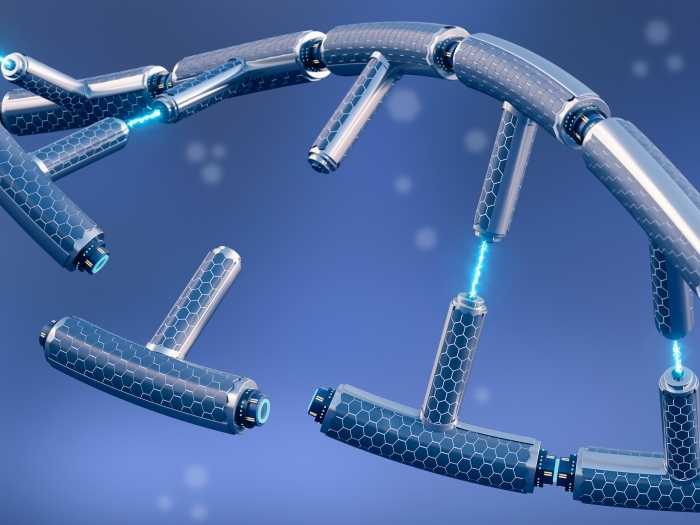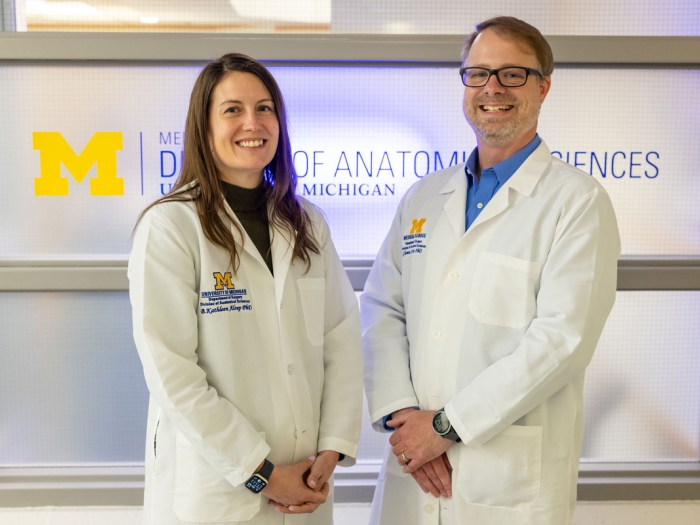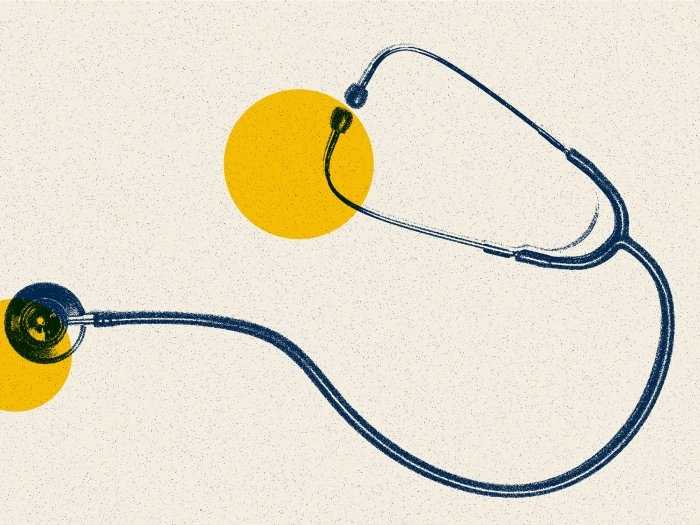Showing 1-15 of 27 results

The Fundamentals
Today on The Fundamentals, our guest Dr. Martin Myers, Director of the U-M Elizabeth Weiser Caswell Diabetes Institute, discusses diabetes research in the context of Ozempic, Wegovy, and other drugs that are changing how people think about weight loss.
You can learn more about Dr. Myers here, and you can follow the department of molecular and integrative physiology @UMPhysiology on X.

Health Lab
Experts in brain cancer outline current discoveries and offer a path of hope for glioblastoma treatment

Health Lab
At-home test can detect tumor DNA fragments in urine samples, providing a non-invasive alternative to traditional blood-based biomarker tests

Health Lab
A new collaborative study, examined the interaction between three naturally occurring gases — nitric oxide (NO), oxygen, and H2S — during generation of new blood vessels, called angiogenesis.

Medical School News
Known as the Health Equity Literature Archive, Chelsea Fisk’s goal was to cultivate empathy and understanding for people from different backgrounds and diverse identities by providing employees with access to diverse literature. The innovative pilot led by clinical researcher Chelsea Fisk served as a form of DEI education that was free to use, self-paced and barrier-free.
Health Lab
Using a chip to process blood samples, doctors can monitor the amount of cancer cells in a patient’s blood to determine how well a treatment is working by the fourth week, according to a new study.

Health Lab
Recently approved by the Food and Drug Administration, Pluvicto is a radionuclide-labelled drug administered to patients showing promising results.

Health Lab
Experience gave him a new appreciation for interprofessional patient care

Health Lab
A physician invents a creative approach for medical students in diabetic care.

Health Lab
Findings from researchers at the University of Michigan Health Rogel Cancer Center, published in Cancer Discovery, show how a specific nucleotide metabolite called GTP controls responses to radiation and chemotherapy in an unexpected way.

Health Lab
The tool, which is free to use, includes photography, videography and virtual reality learning resources from anatomical donors, along with comprehensive lab manuals and interactive files with click-to-reveal testing capabilities.

Health Lab
A study in PNAS identifies a protein that, when missing, makes exercising in the cold that much harder—that is, at least in fruit flies.

Health Lab
Research from the Department of Molecular & Integrative Physiology at Michigan Medicine identifies a previously unknown genetic mutation that causes the disease called primary aldosteronism in certain populations.